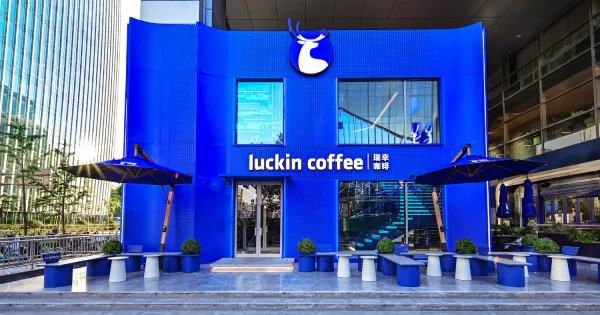5 Best Supply Chain Management Technology Trends

Effective supply chain management is essential for optimizing operations and delivering exceptional customer satisfaction.
With the rapid advancements in technology, businesses are leveraging various tech trends to optimize their supply chain processes and gain a competitive edge.
This article explores some of the key tech trends in supply chain management that are revolutionizing the industry and driving enhanced efficiency.
1) Internet of Things (IoT) Integration

The integration of IoT devices in supply chain management has transformed the way businesses track and manage their inventory and assets. IoT devices, such as sensors, RFID tags, and GPS trackers, enable real-time monitoring and visibility across the entire supply chain, from production to distribution. These devices collect and transmit data on various parameters, including location, temperature, humidity, and product conditions, allowing businesses to have a comprehensive view of their supply chain operations.
With IoT devices, businesses can automate inventory management, ensuring accurate stock levels, reducing stockouts, and minimizing excess inventory. Real-time data on product availability and demand enables businesses to optimize their inventory replenishment processes, ensuring timely deliveries and reducing holding costs.
Additionally, IoT devices enable businesses to track and trace products throughout the supply chain, enhancing transparency and enabling faster identification and resolution of any issues or delays.
Moreover, IoT devices provide valuable insights for supply chain optimization and predictive analytics. The data collected from IoT devices can be analyzed to identify patterns, detect anomalies, and optimize supply chain processes. By leveraging advanced analytics and machine learning algorithms, businesses can identify areas for improvement, predict demand fluctuations, and optimize routes and logistics, leading to improved efficiency, cost savings, and enhanced customer satisfaction.
2) Artificial Intelligence (AI) and Machine Learning

AI and machine learning technologies are empowering businesses to make data-driven decisions and automate complex supply chain tasks. By leveraging AI algorithms, businesses can analyze vast amounts of data and extract valuable insights to optimize their supply chain operations.
These technologies can identify patterns, trends, and correlations in data, enabling businesses to make accurate forecasts, improve demand planning, and optimize inventory management. AI can also automate routine tasks such as order processing, inventory replenishment, and supplier management, freeing up valuable time for supply chain professionals to focus on strategic initiatives.
Machine learning algorithms, a subset of AI, can continuously learn from data and improve their performance over time. They can detect anomalies in supply chain data, such as inventory discrepancies or delivery delays, and proactively alert supply chain managers to potential issues. Machine learning models can also be trained to predict demand fluctuations, optimize routes and logistics, and identify areas for cost savings within the supply chain. This enables businesses to make proactive decisions and respond quickly to changing market conditions, ensuring efficient and agile supply chain operations.
Furthermore, AI-powered supply chain analytics platforms can provide real-time visibility into supply chain performance, allowing businesses to monitor key metrics, track KPIs, and gain actionable insights. With AI, businesses can identify bottlenecks, optimize workflows, and improve overall supply chain efficiency. By harnessing the power of AI and machine learning, businesses can enhance decision-making, streamline operations, and gain a competitive edge in the dynamic and fast-paced world of supply chain management.
3) Blockchain for Supply Chain Transparency

Blockchain technology offers a decentralized and transparent approach to supply chain management. By leveraging blockchain, businesses can create a tamper-proof and immutable record of transactions and data across the supply chain. This ensures trust and transparency among all participants, including suppliers, manufacturers, distributors, and customers. Each transaction or event in the supply chain is recorded as a block, linked together in a chronological chain, providing a clear and auditable trail of information.
The use of blockchain technology in supply chain management can bring numerous benefits. It enhances traceability, allowing businesses to track the movement of goods from their origin to the end consumer. This helps in verifying product authenticity, ensuring compliance with regulations, and mitigating risks such as counterfeiting and fraud.
Additionally, blockchain enables faster and more efficient supply chain processes by reducing paperwork, eliminating intermediaries, and automating trust-based transactions. It can streamline payment settlements, reduce administrative costs, and improve overall supply chain efficiency.
Furthermore, blockchain technology can facilitate enhanced collaboration and trust among supply chain partners. By providing a shared and immutable ledger, it enables real-time visibility into inventory levels, product availability, and order status. This enables faster decision-making, better coordination, and improved responsiveness to market demands. With blockchain, supply chain participants can establish secure and efficient networks, fostering stronger relationships and partnerships based on transparency and mutual trust.
4) Robotic Process Automation (RPA)

RPA, or Robotic Process Automation, involves the use of software robots to automate repetitive and rule-based tasks in the supply chain. These robots are designed to mimic human actions and interact with various systems and applications, allowing them to perform tasks such as data entry, order processing, inventory management, and more. By automating these tasks, RPA can significantly improve the efficiency and accuracy of supply chain processes.
One of the key advantages of RPA in supply chain management is its ability to enhance operational efficiency. Software robots can work tirelessly, 24/7, without the need for breaks or vacations, ensuring continuous and uninterrupted task execution. This allows businesses to streamline their operations, reduce manual errors, and improve overall productivity. RPA also enables faster processing times, as robots can execute tasks at a much higher speed compared to manual labor, leading to quicker turnaround times and improved customer satisfaction.
Another benefit of RPA in the supply chain is its scalability and adaptability. Robots can be easily programmed and deployed to handle increasing workloads or new tasks as business needs evolve. They can seamlessly integrate with existing systems and applications, eliminating the need for complex integration projects or major IT infrastructure changes. This flexibility allows businesses to quickly adapt to changing market demands and scale their operations efficiently. Additionally, RPA provides a higher level of data accuracy and compliance, as robots perform tasks with strict adherence to defined rules and regulations.
5) Cloud-Based Supply Chain Solutions

Cloud computing has revolutionized supply chain management by providing scalable and flexible solutions. With cloud-based platforms, businesses can store and access their supply chain data and applications securely and conveniently through the internet. This eliminates the need for on-premises infrastructure and allows for easy collaboration and information sharing across multiple locations and stakeholders.
The scalability of cloud computing enables businesses to adapt to changing demand and easily expand their operations without the need for significant upfront investments in hardware or software.
- Oracle Supply Chain Management: Oracle SCM Cloud offers a comprehensive suite of cloud-based solutions for supply chain management, including procurement, inventory management, demand planning, and logistics.
- SAP Integrated Business Planning: SAP IBP provides end-to-end supply chain planning capabilities on a cloud platform. It offers real-time visibility, demand-driven replenishment, advanced analytics, and collaboration features for efficient supply chain operations.
- Kinaxis RapidResponse: Kinaxis RapidResponse is a cloud-based supply chain planning and response platform. It enables businesses to monitor and analyze real-time data, collaborate across the supply chain, and quickly respond to changing market conditions.
One of the key advantages of cloud computing in supply chain management is the ability to access real-time data and analytics. Cloud-based solutions offer advanced analytics and reporting capabilities, allowing businesses to gain valuable insights into their supply chain performance, identify bottlenecks, and make data-driven decisions. This real-time visibility helps optimize inventory management, improve demand forecasting, and enhance overall supply chain efficiency.
Additionally, cloud-based platforms often integrate with other supply chain technologies, such as IoT devices and AI systems, enabling seamless data exchange and automation.
Cloud computing also enhances collaboration and communication in the supply chain. With cloud-based tools and platforms, different stakeholders, including suppliers, manufacturers, distributors, and retailers, can access and share information in real-time. This promotes transparency, reduces communication barriers, and facilitates effective collaboration among all parties involved in the supply chain. The ability to access and update information from anywhere, at any time, enables faster decision-making and smoother coordination, resulting in improved efficiency and customer satisfaction.
Final Thoughts
Embracing the latest tech trends in supply chain management is essential for businesses looking to enhance efficiency, reduce costs, and gain a competitive edge.
By leveraging IoT, AI, blockchain, RPA, and cloud-based solutions, companies can optimize their supply chain processes, improve customer satisfaction, and drive business growth.
As technology continues to evolve, staying abreast of the latest tech trends and embracing innovative solutions will be crucial for businesses to thrive in the dynamic supply chain landscape.





